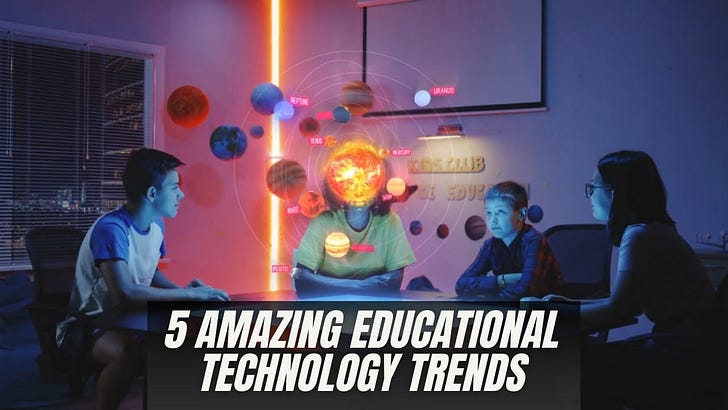Revolutionizing Education: A Closer Look at Cadmus and the Future of Assessments
In today's era, science and technology and education are gradually forming a new pattern of systematic and in-depth integration of all fields, elements, chains, and businesses to jointly build the future ecology of education. Educational Technology (EdTech) has revolutionized the way teachers teach and students learn, which provides interactive and personalized learning experiences that make education more engaging and effective. Digital tools and platforms facilitate access to a vast array of resources, promote collaborative learning and break down geographical barriers.
Vedio: 5 Educational Technology Trends in 2024 | Future with eLearning | Digital learning in 2024. FUTUREYAN. https://www.youtube.com/watch?v=xMajRhCYCnQ.Among the myriad of educational technologies available, an online assessment platform, Cadmus, which is partnered with various universities, is the star of this post because of its integrated nature. There are four key features of Cadmus.
Firstly, Cadmus has a user-friendly Interface, which allows educators to create and publish assessments easily and effectively through the platform support materials. Furthermore, clearly visualized and highly interactive assignment instructions also enable students to have a more precise understanding of the requirements and specific details of the assessment. Even with online learning, students can feel a deep sense of immersion and participation.
Secondly, Cadmus seamlessly integrates with several platforms such as LMS and Turnitin. It ensures a smooth transition for institutions and compatibility with existing systems. For example, teachers can view what students are doing during the assessment process, including how much time was spent writing the assessment and whether the assignment was copied, pasted, or transcribed from the external tools. In addition, teachers can manage assessments directly through the integrated Turnitin Feedback Studio, allowing for efficient grading and plagiarism detection.
Thirdly, Cadmus offers real-time feedback and advanced analytics modules. On the other hand, the dynamic collaborative function allows students to fully utilize their initiative and focus not only on the grades themselves, but also on the process of academic development. On the other hand, detailed analysis and insights into student performance help educators track progress, identify areas of student difficulty, and adjust instructional strategies to improve student learning outcomes.
Last but not least, Cadmus addresses the school's focus on academic integrity. Relying on the algorithmic power of Cadmus, this digital observation and assessment system can replace the traditional offline invigilation mode, effectively improving the integrity of the examination environment, curbing academic misconduct, and maintaining the fairness of the examination to a certain extent. What is more, the non-invasive approach makes the learners feel supported and safe.
The FlexAP project showcased the impact of Cadmus, with over 6600 students completing assessments across 43 subjects. This initiative led to significant improvements in staff workflows, student experience, and academic integrity. Feedback from students reinforced this positive trend, with over 9000 students utilizing the platform in 2020. Impressively, 82% of students expressed a desire to use Cadmus in more subjects. In 2023, Cadmus completed its latest $2 million funding round with the backing of higher education investor Breakthrough Victoria and the UK's leading venture capital fund Emerge Education. The high level of user satisfaction and all forces will enable Cadmus to further develop its international markets, and prepare for continued growth and innovation in the field of education.
As a piece of software, it still has its natural limitations. User data privacy, device dependency, and technological fairness are issues that need to be considered and given concrete improvements. Moreover, Cadmus is still limited in the type of assessment. For instance, practical subjects and artwork appreciation may be challenging to conduct by Cadmus.
Integration of technology in education is no longer optional but necessary. Platforms like Cadmus demonstrate how technology can practice educational norms and enhance educational practices. As we continue to embrace digital transformation in education, tools like Cadmus will play a key role in shaping the future of learning and assessment, ensuring that education remains relevant and effective in a rapidly changing world.



